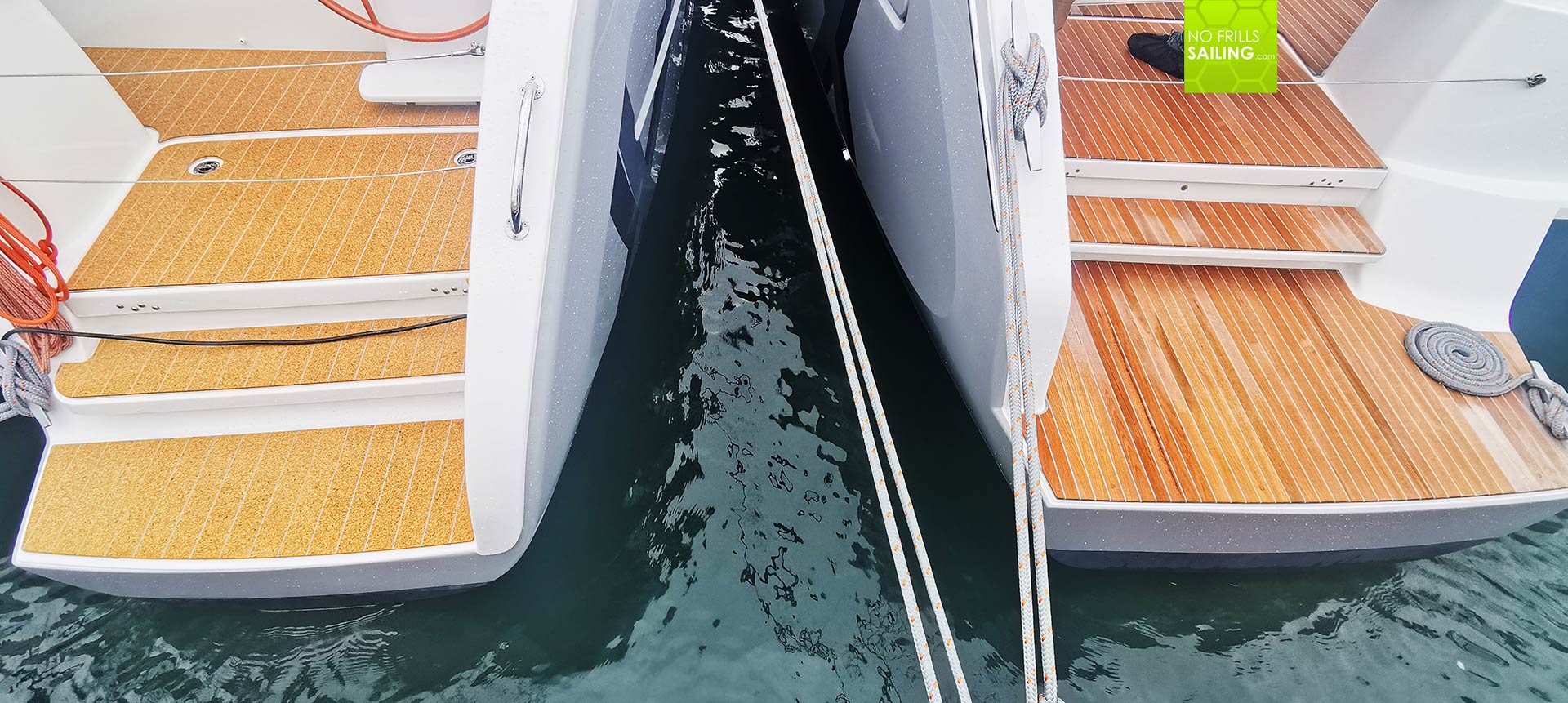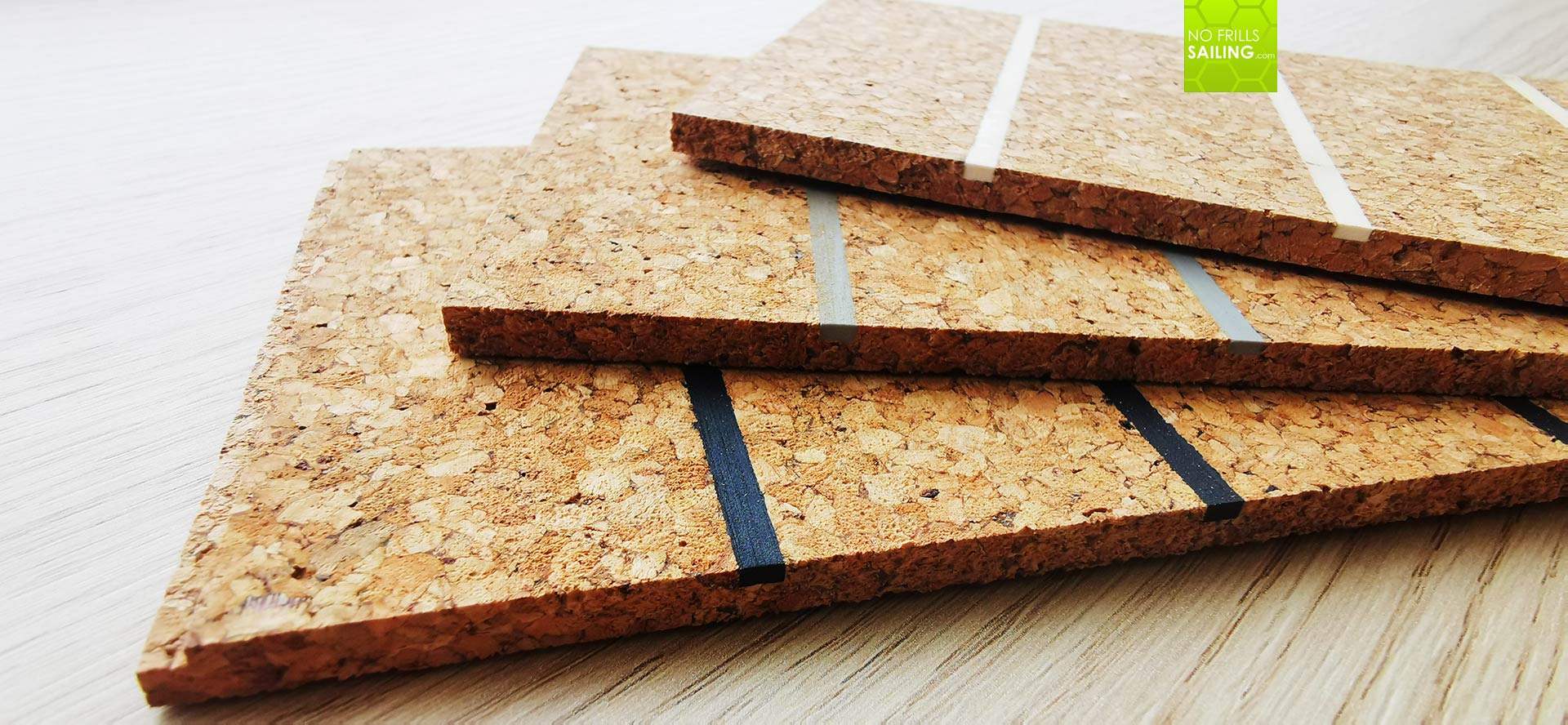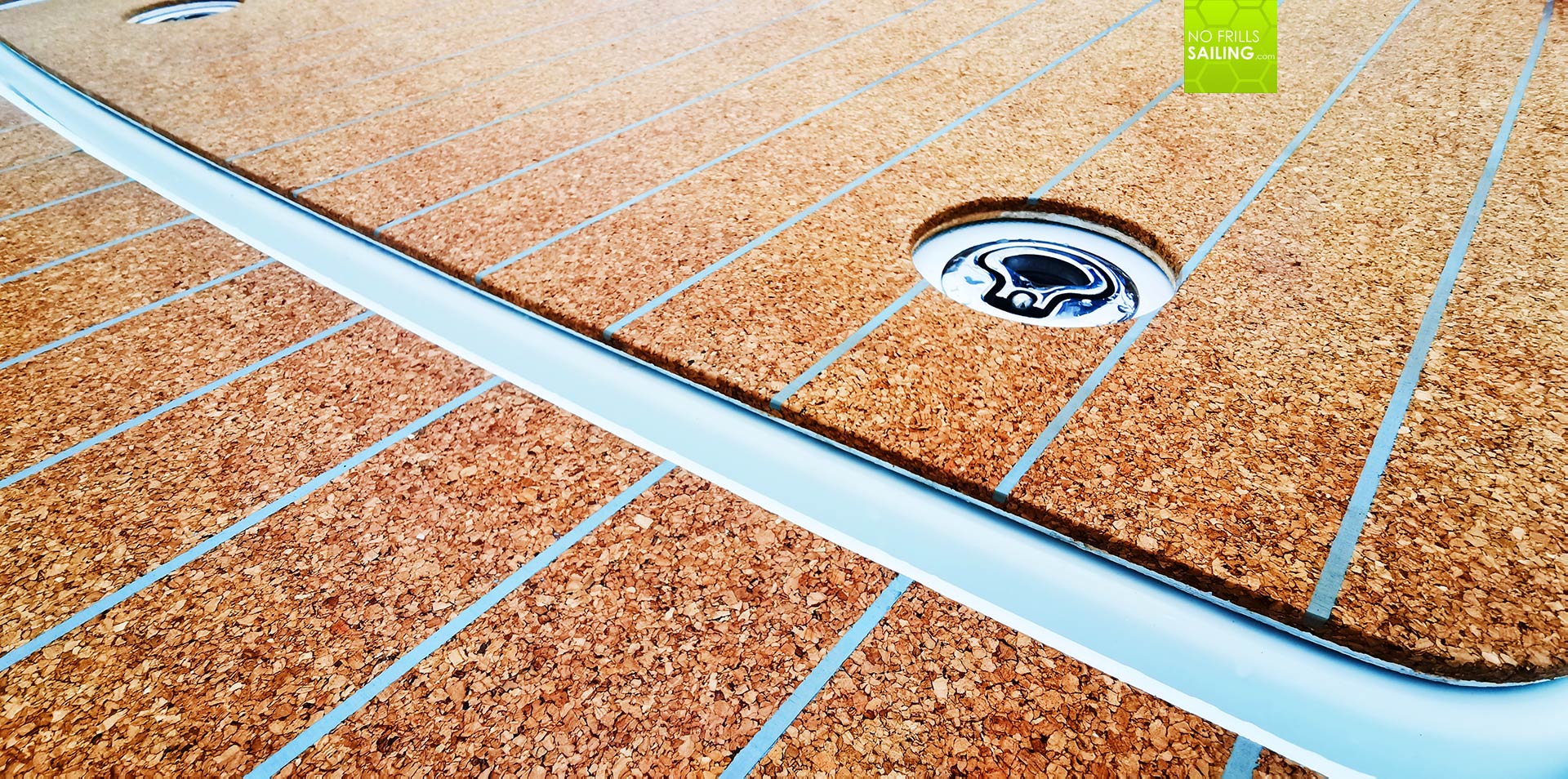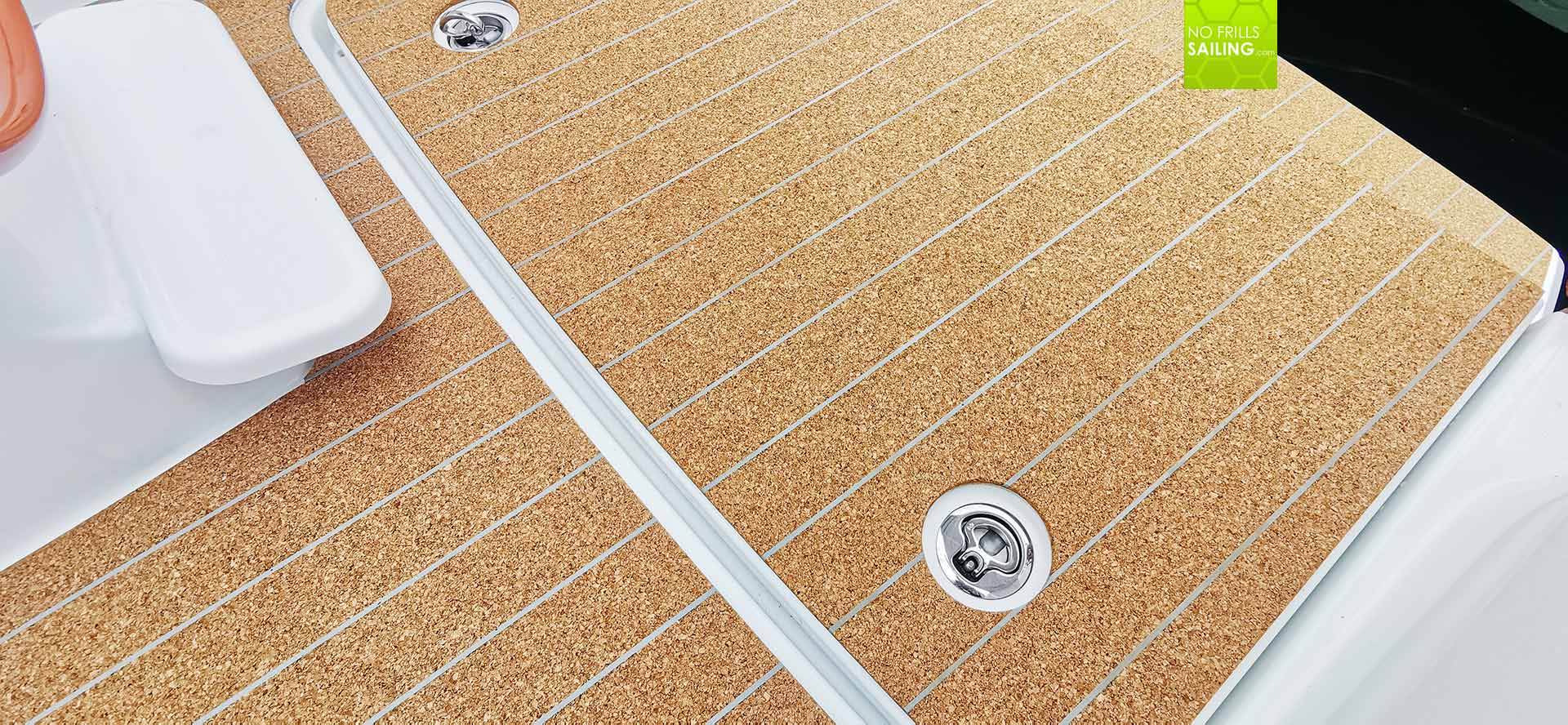There was one detail during La Grande Motte Multihull Show 2022 that really grabbed my mind. A detail that is neither a new topic nor a new discussion, but something that is so inevitably rolling towards the whole boating industry (and thus us, the sailors) that I found it newsworthy to write about. On the Excess catamarans stand one of the cats wasn´t equipped with the all-familiar Teak decking but came without anything: Except for a corner at the starboard side helm station. This was covered with Cork Decking, grey caulking. A sign post in front of it said “New Decking available starting in 2022”, listing the numerous advantages of Cork. Well, really, is it just a new option? I decided to go forward and talk to the yard people.

Cork has been used as a boat decking for decades now. It is nothing new. Especially on Aluminium yachts Cork is the decking of choice, widely praised for its insulation properties and better adhesive qualities that the oily, difficult to affix Teak. Apart from the fact that Teak, as a Tropical timber, is awfully expensive, Cork is very easy to work with and offers roughly the same qualities as a decking as Teak does.
Is a Cork decking the alternative?
Well, first of all, Cork is a natural product – the bark of the Cork tree – that is harvested easily. The tree itself is neither damaged nor cut down, so the Cork bark is re-growing fast every year. The harvesting even speeds up the tree´s bark production. To whom it may concern: Cork trees also seem to bind loads of CO2-amounts (2 to 5 times the amount of trees), so this also seems Greta-approved. As the supplier told me on the stand, that the Cork will be mixed with just 5 per cent non-toxic binder agent and then sprayed and pressed in form.

We received some samples showing not only that the Cork decking for boats could be delivered with all colors of caulking but also that the Cork itself can be colored – from black to grey, to white and literally all colors of the rainbow. More over, Cork decking is resistant to most of the liquids used on boats: Oil, fuel, hydraulic oil or Wine, blood (for the fishermen amongst you) and can be cleaned easily with just a scrub and fresh water. Cork is non-toxic and is not based on crude oil, which sets it apart from all the Flexi-teak plastic alternatives on the market.

As for Excess catamarans (and virtually all of the boat brands on the market right now) a major shift in paradigms is about to come. But why now and what is the whole fuzz about? The EU made it illegal to deal with state companies of Burma last year. That´s part of the sanctions imposed on the military government of Burma/Myanmar. As Teak trees only grow in 4 countries of the world, of which Burma by far has the most amount of marine-approved Teak trees, de-facto and de-jure all Teak-deckings currently in use are kind of illegal. Apart from the fact that Teak is a Tropical timber and cutting these trees damages or even destroys large chunks of rain forest, of course. So what will happen?
An inevitable development
The storage facilities of the Teak decking producers and the yards have been filled up before the new law effectively became active. Boat by boat the yards are eating up their stockpiles which leads inevitably to a point where all Teak is gone and no new shipments arrive. Yards are desperately looking for alternatives: Flexi Teak, Iroko wood as the most likely real wood substitute for Teak decking or … Cork. Some will opt for Iroko, of which I have hear various opinions ranging from “catastrophe” to “works well”, some will opt for artificial Teak made from plastic and some will choose Cork for sure.

With stockpiles decimating and the tipping point coming nearer, I guess we should be bracing for this major change in how our boats look like. Just like the ongoing discussions (and many, many projects realizing) about hybrid-propulsion, electrification, solar-power or even hydrogen powered boats, we will also see increasing political and of course client-induced pressure on the yards to come up with ideas for more sustainable, fairly produced and ecological friendly products or solutions. I personally love Cork and think it´s the best alternative for a boat´s decking, better than oil-based EVA or plastic fake Teak, better than Iroko. We will see what time brings.
You might also be interested in these related articles:
Fake Teak from Plastic
A new EVA-foam decking for my boat
Sustainable boatbuilding: Is this even possible?
